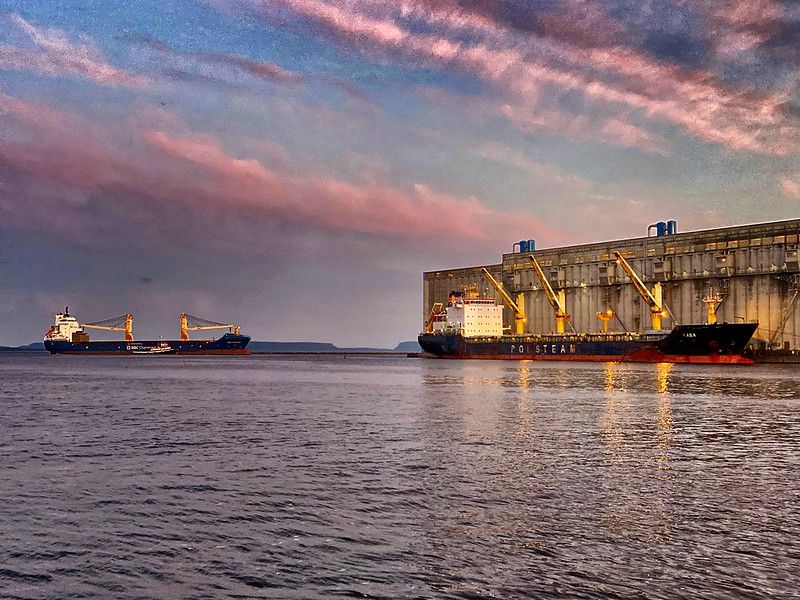UCL provides a detailed analysis of what happened and the implications on future adoption of the policy on mid-term measures for reducing GHG emissions
London 24th October 2025 – Two weeks of negotiations at the IMO give two confusingly different signals, as well as plenty of information on detail to digest, according to UCL (University College London) in their informative readout. In the first week the IMO’s efforts to adopt binding GHG measures in the form of the Net Zero Framework, agreed in principle in April, went backwards. Countries voted to defer the meeting and therefore the decision to adopt. There is now certainty that this regulation’s entry into effect will be delayed by 12 months to 1st January 2029, but there is also increased uncertainty that it will be adopted at all.
Although US and Saudi Arabian pressure was central, the full explanation for the significant shift in positions from April to October is difficult to decompose. Interventions by countries during negotiations offer some narrative and potential explanations, but all the underlying reasons are likely complex and may involve multiple interacting causes.
Dr Tristan Smith, Professor of Energy and Transport at UCL Shipping and Oceans Research Group said: “Instead of clarification, shipping and the global trade and energy systems now face significantly increased uncertainty and therefore risk. Understanding what happened at the IMO in October and why is now central not just for any chance of future adoption, but for just and equitable climate action generally. This lost momentum can be recovered, but we have taken a step closer to the abyss that is dangerous climate change.”
However, the second week of negotiations, the ISWG-GHG 20, made steady progress on the discussion of the detail for the regulation’s implementation. Many of the countries which had been negative towards adoption in the previous week were back to negotiating their preferences on all the key implementation details – how the regulation should incentivise energy transition, how the fund should be setup, how the lifecycle and sustainability of different fuels should be evaluated and certified.
Dr Annika Frosch, Research Fellow at UCL Shipping and Oceans Research Group said: “After last week’s challenges, this week’s intersessional negotiations were promising. We observed constructive participation from all parties — including those with prior concerns — which led to real progress on key technical guidelines. Even previously contentious topics, such as the Net Zero Fund, experienced broad and active involvement from many delegations, helping to clarify priorities like establishing the Governing Board and fundamental principles to guide the Fund’s future work.”
Beyond the overall outcome on adoption, the detailed discussions in ISWG-GHG 20 reveal some positive emerging perspectives that will form the basis of the guidelines.
No decisions were taken to rule on detail either way, and so the ideas all move forwards to greater clarification.
Dr Pinar Langer, Research Fellow at UCL Shipping & Oceans Research Group said: “The past two weeks at the IMO sent mixed signals — while the adoption of the Net Zero Framework was delayed, detailed negotiations showed that most countries still see it as the right foundation for maritime decarbonisation, keeping the door open for meaningful progress in 2026.”
Dr Marie Fricaudet, Research Fellow at UCL Shipping & Oceans Research Group said: “The industry now faces increased investment uncertainty: regulatory uncertainty from the IMO (timing and stringency of the NZF); from the concrete implementation of the guidelines which will have a large impact on fuels and technologies’ competitiveness and prices; but also from the space it opens for more disparate regional and private initiatives to fill the gap left by the IMO in the meantime.”
*For column 2, evidence provided in full readout
About UCL Shipping and Oceans Research Group
The UCL Energy Institute hosts a world leading research group which aims to accelerate the transition to an equitable and sustainable energy and trade system within the context of the ocean. The research group’s multi-disciplinary work on the shipping and ocean system leverages advanced data analytics, cutting-edge modelling, and rigorous research methods, providing crucial insights for decision-makers in both policy and industry.The group focuses on three core areas: analysing big data to understand drivers of historical emissions and wider environmental impacts, developing models and frameworks to explore energy and trade transition to a zero emissions future, and conducting social science research to examine the policy and commercial structures that enable the decarbonisation of the shipping sector. For more information visit





